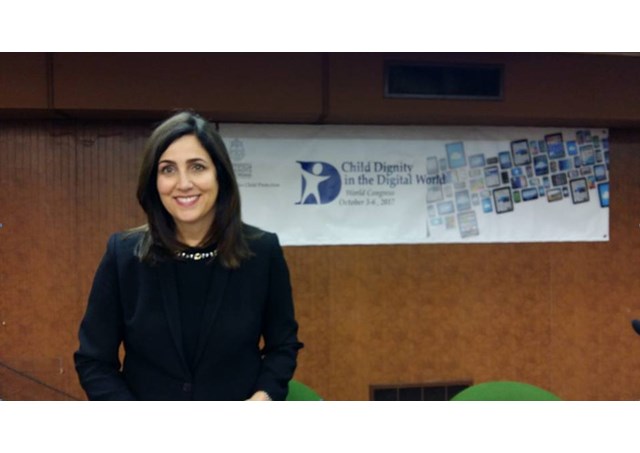
Protecting children on-line: Congress at Gregorian University

(Vatican Radio) How to combat abuse and exploitation of children on-line. That’s the subject of a world congress which opens in Rome on Tuesday entitled ‘Child Dignity in the Digital World’. The four day meeting brings together different government and police representatives, software companies, religious leaders and medical experts specialized in the impact of on-line abuse.
The meeting, hosted by the Pontifical Gregorian University and its Centre for Child Protection, aims to conclude with a joint action plan to be presented to Pope Francis on Friday.
Among the main organisers of the event is Baroness Joanna Shields, the British government’s special representative on internet crime and founder of a global alliance called ‘WePROTECT’.
She talked to Philippa Hitchen about the growing urgency of this global problem…
Baroness Shields recalls when she was working for Facebook, she facilitated a meeting between founder Mark Zuckerberg and former British Prime Minister David Cameron to discuss the problem of children being groomed on-line for sexual abuse. Since 2010 leaders of the social network giant had become aware that “this is a cross-border problem, a cross-border crime”.
Prosecute criminals, protect victims
Working with Cameron and former U.S. President Barack Obama, Shields set up WePROTECT, which she describes as a “hands-on, multi-stakeholder approach to tackling this crime globally”. It includes law enforcement officials, working with over 70 governments, as well as NGOs and technology companies, to share information, identify challenges, prosecute criminals and protect victims.
Impact of abuse
The biggest challenge, Shields says, is that technology is evolving at such a pace to serve more than 3 billion people connected to the internet. Part of reason for holding the congress at the Gregorian University, she says, is to bring together WePROTECT experts with academics, to see how this problem is impacting the physical and mental health of young people.
Risks for post-millennials
Recent research, Shields continues, shows that the post-millennial kids, who have grown up connected to social media on smartphones, go out less and develop more slowly towards adulthood. The Church is concerned, she says, because we need to look at the risks and harms, seeing “how we can support them to be healthy, happy adults”.
Church must respond and support
The Congress is exploring how children develop digital literacy, Shields says, but also how to help deal with the problems. She insists that “the Church and all faiths need to understand what’s happening and build a credible response”. In our internet-enabled world, with the development of artificial intelligence and augmented realities, she concludes, “we need to understand, embrace and be able to support the next generation as they live their lives connected to screens”
| All the contents on this site are copyrighted ©. |


